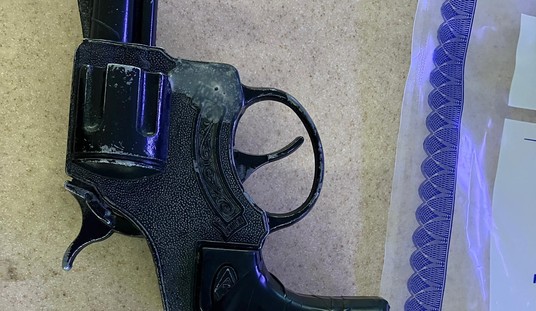I think there is an argument to be made that no other individual had as much of an impact on the usage of small arms in the late 20th and early 21st centuries than Col. Jeff Cooper. Col. Cooper is perhaps best known for popularizing the “four rules” of gun safety and the Modern Technique of the Pistol, which he taught at the shooting school he founded, the world-famous Gunsite Academy.
Those things alone would be a tremendous accomplishment for most people, but Cooper wasn’t content to focus his life only on handguns. Col. Cooper was also a rifleman, and there is an argument to be made that a concept he popularized, the scout rifle, is just beginning to really hit its stride a full decade, after Col. Cooper passed on.
Col. Cooper began developing the concept of the scout rifle in the late 1980s as “the one rifle you would have if you could only have just one rifle.” It might not be as accurate at distance as a precision rifle, put as much lead downrange as fast as a pure fighting rifle, or be as light as a pack rifle, but was designed to do almost everything relatively well and be a light, and compact weapon that could go almost anywhere.
“It’s most outstanding characteristic is handiness. It is light, compact, and user friendly… It is easy to carry, convenient to pack into a boat, car, or airplane, powerful enough for any targets shot of pachyderms, and easily provisioned throughout the world. It is ideally adapted to the snap shot, and is quite able to group well into the vital zone of a 200-pound target out to around 400 paces… under field conditions.”
—The Scout Rifle: Some Simple Principles – Guns & Ammo – July 1988.
Over a period of years, Cooper refined the concept down into a set of fairly rigid criteria; those rifles that fit the criteria were scout rifles, and those that were outside the parameters were dubbed “pseudo-scouts.”
The criteria for a scout rifle includes specifications for the rifle, sights, optics, slings, an accessories
The rifle
- 1 meter or less in length
- Chambered in .308 Winchester (or at least uses the .308 as a parent case)
- short-action
- 18-20 inch barrel
- good trigger
- light weight (ideal was 3 kilos or 6.6 pounds with sights, scope, and sling; max was 7.5 pounds with sights, scope, and sling)
The sights
- low-mounted, long eye relief optics with low magnification, mounted forward of the action
- ghost-ring rear sight, and a post front sight
The sling
- CW or Ching sling
- flush-mounted sling swivel sockets (no protruding hardware)
Accessories
- Butt magazine or cuff for ammo storage
- collapsible or vanishing bipod
- magazine cut-off
- Stripper clip compatibility
For a long while, the only way to get a scout rifle was to send your short-action .308 rifle to a competent gunsmith to be reworked to Scout criteria, which could easily lead to a very expensive firearm.
Fortunately for us today in the middle of the scout rifle’s resurgence, we have a number of factory-made scouts to choose from.
Steyr Scout
Introduced in 1998, the Steyr Scout is the “grandaddy” of all factory scout rifles, and the only scout personally approved of by Col. Cooper in his lifetime. Owning a Steyr Scout was originally a very expensive prospect. As time has passed, however Steyr has not only refused to raise the price of their Scout, but has recently been able to drop the price of the rifle to a MSRP of $1,499 as interest in the platform has surged.

The Steyr Scout is popular and versatile enough that it became the basis of a precision rifle, the Steyr Elite .308.
Ruger Gunsite Scout
Perhaps nothing is more directly responsible for the recent resurgence of the scout rifle concept as the Ruger Gunsite Scout, which was developed in close partnership with Gunsite Academy. Introduced in 2012, with blued and stainless versions for both right and left handed shooters, it it a sub-$1,000 price point that is attractive to a lot of shooters. 
Mossberg MVP Scout
Mossberg jumped into the expanding scout rifle market last year with the MVP Scout, a variant cleverly designed to use magazines from both the M1A and SR-25/AR-10 family of rifles. The MSRP on this newest scout is listed at a MSRP of $738, and can be found for significantly less, assuring that it will be once of the top-selling scouts for years to come.
Honorable Mention: Savage Model 11 Scout
The Savage 11 Scout has a MSRP of $818 and may convert lot of fans of the AccuTrigger, but its too-beefy design is both a little too long and too heavy to be a true scout.

Honorable Mention: Springfield Armory Squad Scout
Springfield Armory makes a trio of short-barreled M1A variants designed for forward-mounted scopes including the Squad Scout, but weighing in a hefy-8.8 pounds empty, they don’t come close to meeting the core concept of being light and easy to carry.

* **
I was fortunate to be one of a hand-selected group of attendees for the second-ever Scout Rifle Conference at Gunsite Academy last week, where an influential group of scout rifle experts, shooters, media, and and manufacturers got together to train on the platform, have a friend;y competition, and then hold a roundtable to help manufacturers further refine their designs.

I’d not fired a scout rifle under field conditions prior the the Scout Rifle Conference, but by the end of the week, I’m sold on the concept of the scout rifle as one of the most mature and thoroughly refined concepts I’ve encountered.
We’ll be talking more about the Scout Rifle Conference in the days ahead.









Join the conversation as a VIP Member